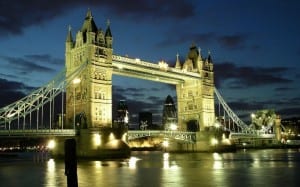 The phrase “political risk” conjures up pictures of sand, Kalashnikovs and commodities exploitation. However, the sort of questions that business men and women routinely consider regarding emerging markets investment are rapidly becoming the sort of question that they will have to consider for the UK – and that as communicators, we should consider adapting the techniques that work in other parts of the world.
The phrase “political risk” conjures up pictures of sand, Kalashnikovs and commodities exploitation. However, the sort of questions that business men and women routinely consider regarding emerging markets investment are rapidly becoming the sort of question that they will have to consider for the UK – and that as communicators, we should consider adapting the techniques that work in other parts of the world.
Now, more than for many years, corporate investors in the UK need to consider a variety of vastly different political and regulatory scenarios when planning their business development strategies. Political optionality and therefore risk is back on the table and communicators have to be aware of this wide divide in the political and media landscapes.
We are entering a new paradigm for the British business landscape. Having worked in financial PR for 15 years, I’ve rarely looked at my home market and thought that foreign businesses need be genuinely concerned as to the future of their UK invested €/$/¥.
From the 1990s recovery onwards, foreign businesses invested in the UK and British businesses flourished, in part because of the UK’s singular relationship with Europe. Inside the tent, but protected against the Euro’s convulsions on international capital markets. Stable fiscal and monetary policy combined with a less regulated business and employment policy meant that large foreign businesses felt safe investing in the UK. The ROI was clear.
Then came the global economic crunch and everything changed. Once we had all decided who was to blame (investment bankers) there were massive arguments about the correct fiscal and monetary policy mix that would lead to recovery. However, the length of time taken for any real long term recovery has opened up old political debates that could have long lasting economic consequences. Optionality and therefore risk was back.
The politics of recent months have exemplified this. Think about the Scottish Nationalist Party’s threats in advance of the independence referendum; that openly pro-Union businesses would face a “day of reckoning”. This was piled on top of the monetary and wider economic consequences that were inherent to the potential end of the Union.
Senior political figures on the centre-right are vying to see who can take the most Eurosceptic line. Nigel Farage, the leader of the United Kingdom Independence Party and an elected Member of the European Parliament, has become a lightning rod for dissatisfaction with the UK’s membership of the EU and he’s extremely effective and painting a utopian future for this nation beyond the clutches of Brussels bureaucrats. The major credit ratings agencies have now also become sucked into the debate, stating that a potential “Brexit” is the most dangerous political risk to the structural integrity and therefore value of the UK economy.
For a little while after 1997, UK politics was about the centre ground – about targeting 5% of the population that were not engrained in their views. When combined with relative economic prosperity, there were few real political risks to consider for businesses in the UK. A sensible corporate policy position could be easily debated with all parties as the lines of demarcation were so narrow.
We now face an entirely different scenario – where the two major parties and their leaders offer a distinct choice, neither of which is neccesarily that appetising. Businesses face serious uncertainty about the makeup of the next Government and the shape of its economic and industrial policy. On the one hand in Ed Miliband we have potential Prime Minister who in his last three conference speeches has completely forgotten to mention the deficit, promised a price freeze on domestic energy prices, and talked about “Predator Capitalism”. In David Cameron, we have a Prime Minister who, if elected with a majority, could take Britain out of the EU, is adamant that Government backed credit in the housing market is a prudent policy (seven years after a global crisis which started subprime mortgage defaults) and is committed to a tough line on immigration. Neither option is exactly risk free for business.
Communicators need to be better connected, lighter on their feet and more intellectually flexible than has been the case for over a decade. Communications has to retain its primary role of protecting and enhancing value, but that job is now to be considered against a far more complex political and economic background than has been the case for many years. In many ways, UK political risk and the communications solutions are now far more complex than those of emerging markets.


